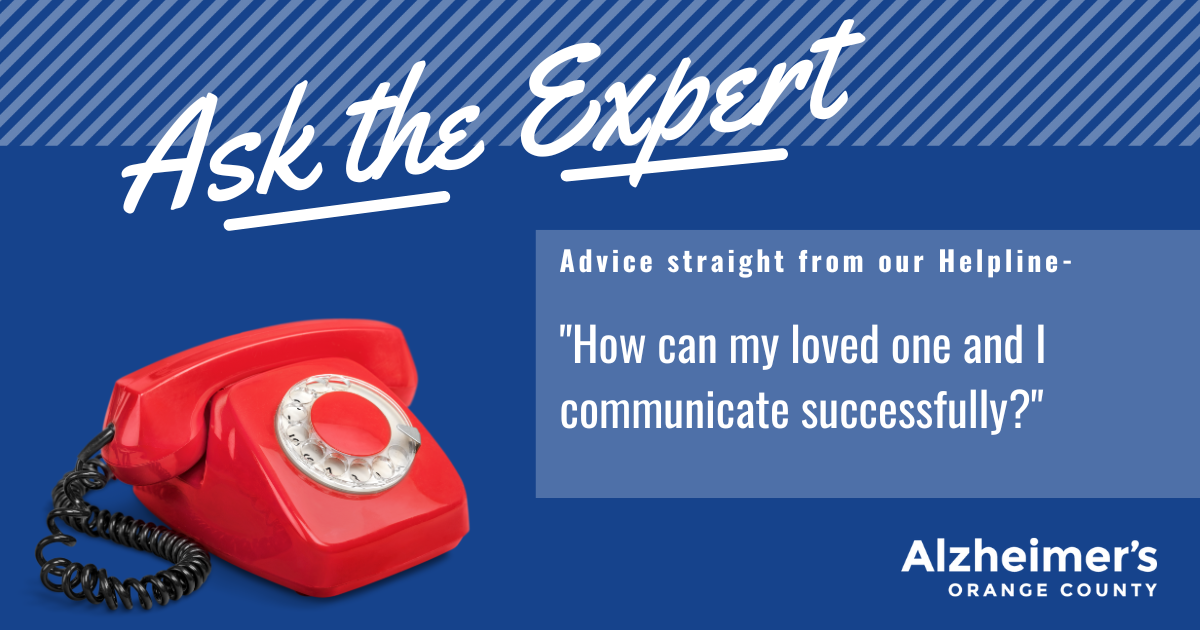Communicating with someone who has Alzheimer’s disease or another form of dementia can be frustrating and overwhelming for both you and your loved one. The way you speak and phrase things needs to be adjusted when communicating with someone who has dementia. Let’s talk about it.
Someone living with Alzheimer’s might perceive reality differently because of the disease’s impact on brain function, particularly the parts of the brain that affect memory and cognitive abilities. This can lead to misperceptions, delusions, or a tendency to live in the past. Correcting them or telling them they are wrong is not helpful in situations like this. It is best to hear them out, be patient, go with the flow and then redirect the conversation.
How you respond and react is very important. Constant negative responses or reactions can greatly affect your loved one’s emotional state, leading to agitation, anxiety, embarrassment and lowered self-esteem. When there is a decrease in self-esteem, or when they get embarrassed, it can lead to withdrawal from interactions. Withdrawal from conversations and interactions may lead to sadness and isolation.
One of the best ways to understand whether your response is having a positive or negative effect is to put yourself in their shoes. Imagine if every time you said something, you were told by those around you like your sister, child, or spouse that you are wrong or making things up. How would that make you feel? It’s the same for someone with Alzheimer’s. What they know now, what their reality is and what their brain is telling them, that is what is true for them now. Unfortunately, no matter how many times you tell them that they are wrong or they aremaking things up, they can not just fix their brain. Their reality is different now. The best thing you can do to help and support them is to be there, go with the flow, let them say what they think, then redirect the conversation.
Here are some do’s and don’ts for topics such as reasoning, reminding, forgiveness, and patience.
Reasoning:
Do’s
- Agree with them
- Divert attention by introducing a different subject or activity
Don’ts
- Reason with them
- Try to convince them or insist on something else
Reminding:
Do’s
- Provide a brief explanation
- Repeat instructions the exact same way
- Reminisce
Don’ts
- Remind them that they forgot
- Test their memory
- Contradict or correct them
Forgiving:
Do’s
- Forgive any negative reactions
- Accept the blame even when it’s not your fault
Don’ts
- Take things personally
- Question their memory
- Blame them
Patience:
Do’s
- Avoid insistence
- Avoid confrontation
- Give them time to comprehend and understand what you are saying/asking
Don’ts
- Rush them
- Correct them
- Argue
Additional Reading
Caregivers Guide to Communication
View caregiver topic sheets to learn more about how to communicate with your loved one and
how to talk about sensitive issues. Read here.
Caregivers Guide to Different Behaviors
View multiple guides to be able to understand what your loved one might be feeling and what to
do when they are expressing those feelings. Read here.
Ask the Expert: What can I do to understand what my loved one is experiencing
Learn more on what you can do to better understand what your loved one is going through.
Read here.


